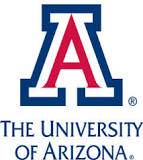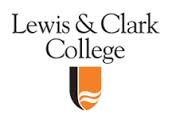What do they do?
Diagnose and implement individual or schoolwide interventions or strategies to address educational, behavioral, or developmental issues that adversely impact educational functioning in a school. May address student learning and behavioral problems and counsel students or families. May design and implement performance plans, and evaluate performance. May consult with other school-based personnel.
Also known as:
Autism Consultant, Bilingual School Psychologist, Challenging Behavior Consultant, Consulting Psychologist, Early Intervention School Psychologist, Educational Diagnostician, Learning Consultant, Psychologist, School Psychologist, School Psychometrist
-
1.4%
Change
Ranks #N/A in job growth rate180Job Openings
Ranks #N/A in net job growth
-
University of Arizona
Tucson, AZ
-
William & Mary
Williamsburg, VA
-
Azusa Pacific University
Azusa, CA
-
Emporia State University
Emporia, KS
-
Lewis & Clark College
Portland, OR
Looking for colleges that offer a specific major? Use the College Match Tool to find your best-matched schools and discover your estimated Net Price!
- Doctorate or Professional Degree (38%)
- Master's degree (54%)
- Bachelor's degree (8%)
- Associate's degree (<1%)
- Some college, no degree (<1%)
- High school diploma equivalent (<1%)
- Less than high school diploma (<1%)
People in this career often have these skills:
- Active Listening - Giving full attention to what other people are saying, taking time to understand the points being made, asking questions as appropriate, and not interrupting at inappropriate times.
- Reading Comprehension - Understanding written sentences and paragraphs in work-related documents.
- Speaking - Talking to others to convey information effectively.
- Writing - Communicating effectively in writing as appropriate for the needs of the audience.
- Critical Thinking - Using logic and reasoning to identify the strengths and weaknesses of alternative solutions, conclusions, or approaches to problems.
- Monitoring - Monitoring/Assessing performance of yourself, other individuals, or organizations to make improvements or take corrective action.
- Social Perceptiveness - Being aware of others' reactions and understanding why they react as they do.
- Judgment and Decision Making - Considering the relative costs and benefits of potential actions to choose the most appropriate one.
- Service Orientation - Actively looking for ways to help people.
- Complex Problem Solving - Identifying complex problems and reviewing related information to develop and evaluate options and implement solutions.
- Active Learning - Understanding the implications of new information for both current and future problem-solving and decision-making.
- Coordination - Adjusting actions in relation to others' actions.
- Learning Strategies - Selecting and using training/instructional methods and procedures appropriate for the situation when learning or teaching new things.
- Persuasion - Persuading others to change their minds or behavior.
- Negotiation - Bringing others together and trying to reconcile differences.
- Time Management - Managing one's own time and the time of others.
People in this career often know a lot about:
- Psychology - Knowledge of human behavior and performance; individual differences in ability, personality, and interests; learning and motivation; psychological research methods; and the assessment and treatment of behavioral and affective disorders.
- Therapy and Counseling - Knowledge of principles, methods, and procedures for diagnosis, treatment, and rehabilitation of physical and mental dysfunctions, and for career counseling and guidance.
- Education and Training - Knowledge of principles and methods for curriculum and training design, teaching and instruction for individuals and groups, and the measurement of training effects.
- Sociology and Anthropology - Knowledge of group behavior and dynamics, societal trends and influences, human migrations, ethnicity, cultures, and their history and origins.
- Customer and Personal Service - Knowledge of principles and processes for providing customer and personal services. This includes customer needs assessment, meeting quality standards for services, and evaluation of customer satisfaction.
- Administrative - Knowledge of administrative and office procedures and systems such as word processing, managing files and records, stenography and transcription, designing forms, and workplace terminology.
- Mathematics - Knowledge of arithmetic, algebra, geometry, calculus, statistics, and their applications.
People in this career often have talent in:
- Oral Comprehension - The ability to listen to and understand information and ideas presented through spoken words and sentences.
- Oral Expression - The ability to communicate information and ideas in speaking so others will understand.
- Written Comprehension - The ability to read and understand information and ideas presented in writing.
- Deductive Reasoning - The ability to apply general rules to specific problems to produce answers that make sense.
- Written Expression - The ability to communicate information and ideas in writing so others will understand.
- Problem Sensitivity - The ability to tell when something is wrong or is likely to go wrong. It does not involve solving the problem, only recognizing that there is a problem.
- Inductive Reasoning - The ability to combine pieces of information to form general rules or conclusions (includes finding a relationship among seemingly unrelated events).
- Speech Clarity - The ability to speak clearly so others can understand you.
- Speech Recognition - The ability to identify and understand the speech of another person.
- Near Vision - The ability to see details at close range (within a few feet of the observer).
- Information Ordering - The ability to arrange things or actions in a certain order or pattern according to a specific rule or set of rules (e.g., patterns of numbers, letters, words, pictures, mathematical operations).
People in this career often do these activities:
- Administer standardized physical or psychological tests.
- Interpret research or operational data.
- Prepare scientific or technical reports or presentations.
- Collect information from people through observation, interviews, or surveys.
- Design psychological or educational treatment procedures or programs.
- Counsel clients on mental health or personal achievement.
- Conduct scientific research of organizational behavior or processes.
- Advise others on educational matters.
- Coordinate cross-disciplinary research programs.
- Develop educational programs.
- Attend conferences or workshops to maintain professional knowledge.
- Advise others on healthcare matters.
This page includes data from:

 Occupation statistics: USDOL U.S. Bureau of Labor Statistics Occupational Employment Statistics
Occupation statistics: USDOL U.S. Bureau of Labor Statistics Occupational Employment Statistics









